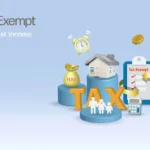Massachusetts requires residents to pay excise taxes on personal and certain business properties, most commonly on motor vehicles and boats. These taxes are essential revenue sources for local municipalities and are enforced by both state and local governments. If you live in Massachusetts and own or register a vehicle or watercraft, understanding how mass excise tax works can help you stay compliant and avoid penalties.
This guide covers the fundamentals of Massachusetts excise taxes, including billing, payment methods, valuation rules, abatement procedures, and how to access the property and excise tax forms and guides you need.

Content
What Is Excise Tax in Massachusetts?
An excise tax is a tax on ownership or usage, rather than on income or general property value. In Massachusetts, this tax is applied to:
- Motor vehicles
- Boats and other watercraft
- Trailers and semi-trailers
- Some business equipment or utility vehicles
The tax is assessed annually and issued by your local city or town. Although enforced locally, these taxes are supported by state statutes and are consistent across municipalities.
Excise tax revenue funds a variety of local services such as:
- Road maintenance
- Emergency response (police, fire)
- Public schools and libraries
- Infrastructure improvements
Understanding the Motor Vehicle Excise Tax
The motor vehicle excise tax is the most common type of mass excise tax and applies to all vehicles registered in Massachusetts.
Key Details:
- Assessment Date: Based on vehicle status as of January 1st of the tax year.
- Tax Rate: $25 per $1,000 of assessed value.
- Valuation Formula: Based on the manufacturer’s list price (MSRP) and a depreciation schedule established by state law.
- Bill Issuance: Typically between January and March.
The depreciation schedule is as follows:
- Year 1: 90% of MSRP
- Year 2: 60%
- Year 3: 40%
- Year 4: 25%
- Year 5 and beyond: 10%
Even older vehicles (10+ years) will not fall below the minimum 10% valuation threshold as long as they remain registered.
How and Where to Pay Your Mass Excise Tax
Once you receive a bill, timely payment is essential. Local tax collectors provide several ways to pay:
- Online payments through the municipal website or Massachusetts DOR portal
- In-person at your city or town hall
- Mail-in checks, using the payment stub included in your bill
Late payments can result in:
- 5% interest per year
- Administrative fees
- Registration or license renewal blocks via the RMV
If you do not receive a bill but your vehicle is registered, contact your local assessor’s office.
Abatements, Refunds, and Exemptions
If you sold your vehicle, moved out of state, or experienced an event that affects ownership, you may be eligible for an abatement or partial refund.
Common Reasons to File:
- Vehicle was sold, traded, junked, or donated
- Owner moved out of Massachusetts before January 1st
- Vehicle was stolen or totaled
- Vehicle was registered in another state
Required Documentation:
- Plate return receipt from RMV
- Bill of sale or insurance settlement
- Proof of new registration in another state
To apply, submit an excise tax abatement form to your local assessor within the later of:
- 3 years from the bill’s due date
- 1 year from the date of payment
Note: Filing with the RMV does not automatically update your excise tax status. You must contact your local tax office directly.
Other Types of Mass Excise Tax: Boats and Trailers
In addition to vehicles, mass excise tax applies to certain watercraft and trailers.
Boat Excise Tax:
- Imposed on boats registered with the Massachusetts Environmental Police
- Taxed annually by the municipality where the boat is usually moored
- Rates vary but follow similar principles to vehicle taxation
Trailer and Semi-Trailer Tax:
- Taxable if the trailer is registered and used in Massachusetts
- Business trailers may have additional documentation requirements
To confirm your local excise rates, contact your city or town assessor’s office.
Finding the Right Forms and Guides
Massachusetts provides downloadable resources and step-by-step instructions for dealing with property and excise tax matters.
You can find:
- Excise tax abatement forms
- Payment instructions
- Motor vehicle and boat excise information
- FAQs and contact info
Visit mass.gov or your municipal website to access the most current property and excise tax forms and guides.
Impact of Proposition 2½ on Excise Taxes
Proposition 2½ is a Massachusetts law that limits the total amount of property tax revenue a municipality can collect in a given year. While it applies primarily to real estate property taxes, it indirectly shapes how towns manage their overall tax revenue strategies—including reliance on excise taxes.
This measure ensures predictability for taxpayers while balancing municipal budgeting needs.
Final Thoughts on Mass Excise Tax
Understanding your obligations under the Mass excise tax system can help you avoid late fees, license suspensions, and unnecessary stress. Whether it’s your car, boat, or trailer, staying on top of your annual excise bill is a key part of responsible ownership.
Accessing the correct property and excise tax forms and guides, knowing how to file for an abatement, and paying your tax on time will keep you in good standing with your local government—and ensure the services you depend on remain funded.
FAQs
When is the Massachusetts motor vehicle excise tax due?
It’s usually due 30 days after the bill is issued, typically in February or March.
What happens if I move to another state mid-year?
You may be eligible for a partial abatement. You must return your MA license plates and register in the new state, then file an abatement with your local Massachusetts tax office.

A business blog writer at the age of 19, Francis is a jack-of-all trades when it comes to writing. He specializes in content creation for businesses and blogs. With years of experience under his belt, he’s able to provide both written and video content that will engage readers and viewers alike!



